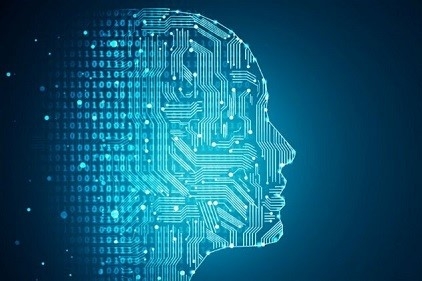Every year, the GCC countries imports nearly 85% of its food*. At the same time, retail food waste in the GCC is notably 38% higher than the global average*.
- A tomato from Europe spends weeks in transit before reaching Qatar. One broken cold chain link? Spoiled.
- A supermarket may discard perfectly edible food because it “looks old.”
- A restaurant may over-orders perishable items, leading to unnecessary waste.
The financial cost? Over $4 billion annually. The environmental impact? Rising carbon footprints, wasted resources, and food shortages.
The real issue? The region’s deep dependence on global supply chains.
Food security has never been more critical for the GCC. Global disruptions, whether caused by pandemics, conflicts, or climate change have proven how fragile supply chains can be. If the GCC wants to secure its food future, technology must be at the center of the solution. Qatar, UAE, and Saudi Arabia are investing billions in food security. But infrastructure alone won’t fix the problem.
This is where Artificial Intelligence (AI) and smart sensors come in;
By improving food quality monitoring, predicting spoilage before it happens, and reducing waste across the supply chain, AI and IoT (Internet of Things) can help businesses cut losses, improve efficiency, and strengthen food security across GCC countries.
To solve the crisis, we must first understand where food is being lost. Food loss happens at the production, storage, and transportation stages—before food reaches consumers. It is often caused by poor cold chain management, inefficient handling, and delays in transit, leading to spoilage.
Food waste, on the other hand, occurs at the retail and consumer levels.
How can AI and smart sensors transform Food Security?
One of the biggest challenges in food logistics is not knowing when food will spoil. Traditional supply chains react to spoilage instead of preventing it.
AI-powered systems can analyze key factors such as temperature, humidity, storage conditions, and transit times to predict the exact shelf life of perishable goods.
This helps businesses to:
– Determine the quality of the produce and identify the best suppliers
– Sell food before it expires
– Adjust storage conditions to extend freshness
– Optimize distribution to minimize loss
For example, an AI system monitoring a shipment of dairy products can flag a truck that is running at 5°C instead of the required 1°C-4°C, preventing mass spoilage before it happens.
By shifting from reactive to predictive models, AI can save millions of tons of food every year.
AI can do best predictions when it is supported a quality data coming from the smart sensors monitoring the products.
Smart sensors integrated with AI can track real-time freshness at every stage of the supply chain.
These sensors monitor curtail factors:
– Temperature & humidity levels in storage units
– Gas emissions indicate food decay
– Supply chain disruptions that affect quality
If conditions change, automated alerts notify suppliers before spoilage occurs.
Imagine a shipment of seafood being transported from Oman to the UAE. If temperature sensors detect a rise above the safe storage range, an alert is sent immediately so corrective action can be taken, saving the shipment from spoilage. With real-time tracking, food reaches retailers and consumers in better condition, with a longer shelf life.
Many businesses, especially supermarkets and restaurants struggle with overstocking perishables. Without accurate demand forecasting, they end up ordering more than they need, leading to excessive waste.
AI can analyze consumer buying patterns, seasonality, and inventory levels to optimize ordering. Instead of relying on guesswork,
Businesses can:
– Stock exactly what they need no more, no less
– Adjust purchases based on real-time sales trends
– Reduce unnecessary food waste, cutting costs and environmental impact
The future of food security is about using what we already have, smarter.
Businesses, retailers, and food suppliers that adopt AI-driven food quality monitoring, smart sensors, and predictive analytics will:
– Reduce losses & cut waste
– Optimize logistics & inventory
– Strengthen food security & business resilience
If you’re in retail, food distribution, logistics, or agriculture, it’s time to embrace AI & smart sensors for food management.
Integrating Artificial Intelligence (AI) and smart sensor technologies into the food supply chain is pivotal for GCC nations. By adopting such innovations, the GCC can reduce dependency on imports, optimize resource utilization, and ensure a sustainable food future. This technological shift not only addresses immediate food security challenges but also aligns with the long-term visions of GCC countries, promoting economic diversification and resilience.
Embracing AI and smart sensor technologies is not merely a technological upgrade; it’s a strategic move towards self-reliance and sustainability in the GCC’s food sector. To reach the targets, GCC countries pitching the vision for example, Qatar’s National Vision 2030 aims to transform the country into an advanced society capable of achieving sustainable development by 2030, UAE’s National Food Security Strategy 2051, and Saudi Arabia’s Vision 2030 with a focus on reducing food waste to enhance food security.
Addressing food loss and waste is crucial for the GCC’s food security and economic sustainability. By embracing AI and smart sensor technologies, the region can transform its food supply chain, reduce dependency on imports, and align with national development goals. The integration of these technologies represents a pivotal step toward a more secure and self-reliant food future for the GCC.

